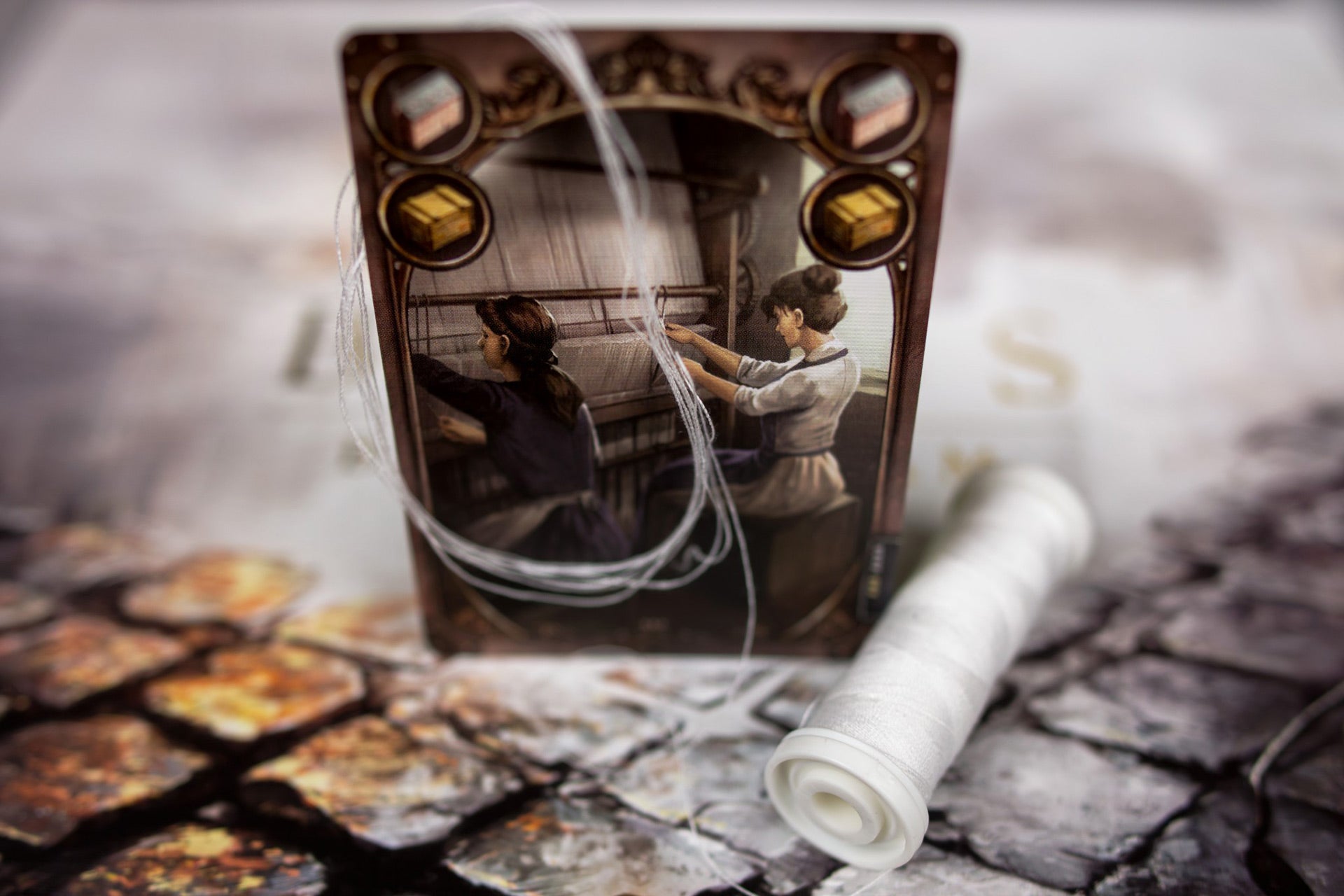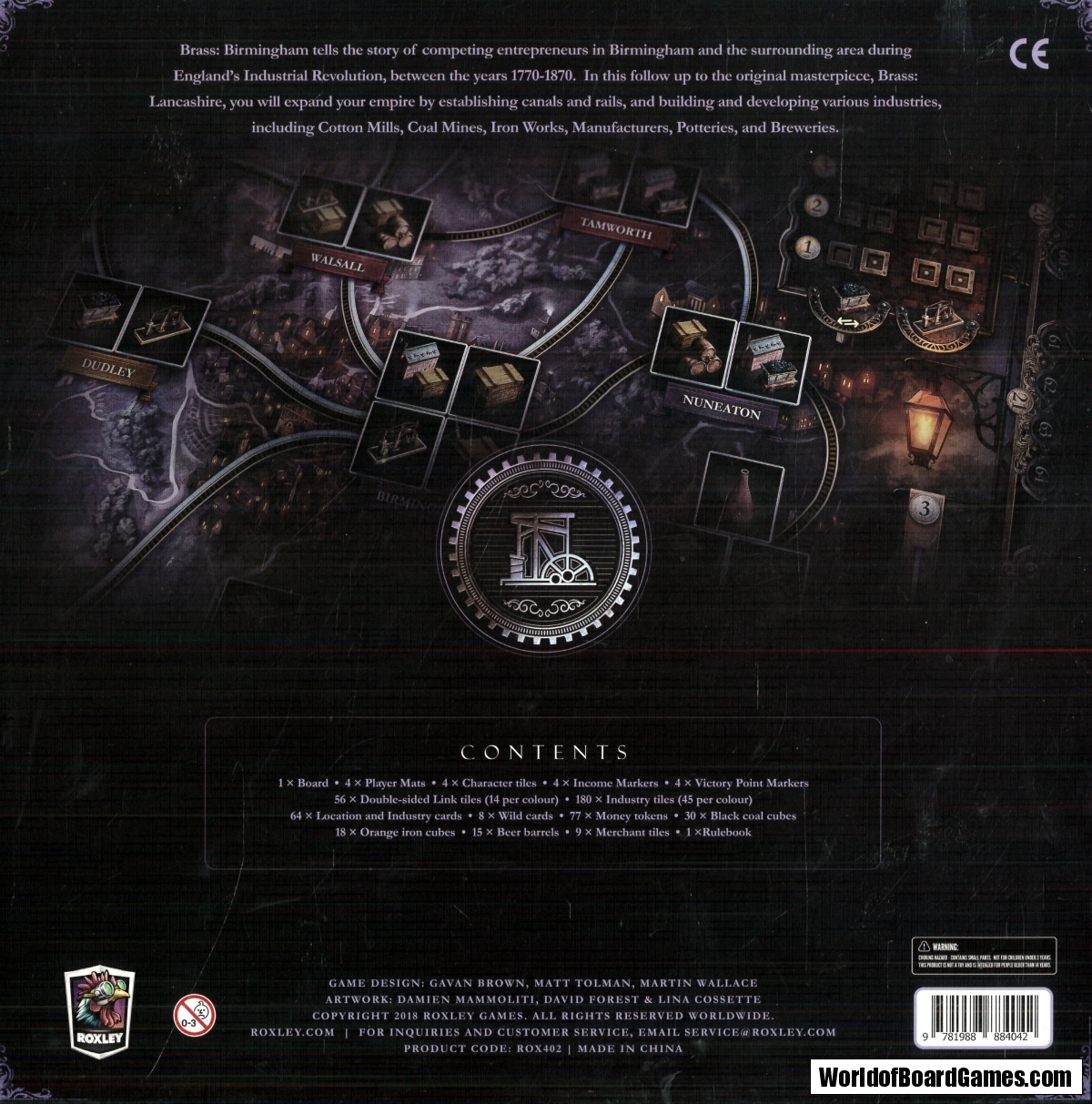

As an incentive to sell early, the first player to sell to a trader receives free beer.īirmingham features three all-new industry types:īrewery - Produces precious beer barrels required to sell goods. For example, a level 1 cotton mill requires one beer to flip. To sell cotton, pottery, or manufactured goods to these traders, you must also "grease the wheels of industry" by consuming beer. Each of these traders is looking for a specific type of good each game. You must now sell your product through traders located around the edges of the board. Iron, coal, and cotton are three industries which appear in both the original Brass as well as in Brass: Birmingham.īrewing has become a fundamental part of the culture in Birmingham. This provides players with the opportunity to score much higher value canals in the first era, and creates interesting strategy with industry placement. Instead of each flipped industry tile giving a static 1 VP to all connected canals and rails, many industries give 0 or even 2 VPs. VPs are counted at the end of each half for the canals, rails and established (flipped) industry tiles.īirmingham features dynamic scoring canals/rails.

The game is played over two halves: the canal era (years 1770-1830) and the rail era (years 1830-1870). (This action replaces Double Action Build in original Brass.) Brass: Birmingham tells the story of competing entrepreneurs in Birmingham during the industrial revolution, between the years of 1770-1870.Īs in its predecessor, you must develop, build, and establish your industries and network, in an effort to exploit low or high market demands.Įach round, players take turns according to the turn order track, receiving two actions to perform any of the following actions (found in the original game):ġ) Build - Pay required resources and place an industry tile.Ģ) Network - Add a rail / canal link, expanding your network.ģ) Develop - Increase the VP value of an industry.Ĥ) Sell - Sell your cotton, manufactured goods and pottery.ĥ) Loan - Take a £30 loan and reduce your income.īrass: Birmingham also features a new sixth action:Ħ) Scout - Discard three cards and take a wild location and wild industry card. The studio responsible for releasing Brass: Birmingham is Roxley, a company that’s otherwise best known for releasing board games such as Santorini - an abstract game that sees two-players competing to build the tallest temple first - and Steampunk Rally.īrass: Birmingham digital edition is currently available for £9.91, 20% off it’s usual price due to the Steam summer sale.Brass: Birmingham is an economic strategy game sequel to Martin Wallace' 2007 masterpiece, Brass. The digital version of Brass: Birmingham was developed by Cublo and published by Phalanx, the two companies responsible for the digital adaptation of Brass: Lancashire.īrass: Birmingham, the tabletop original, was co-created by Gavan Brown and Matt Tolman - who have previously worked together on the sci-fi deckbuilding game Super Motherload - as well as Martin Wallace, the designer behind Brass: Lancashire and Railways of the World. Brass: Birmingham is currently in early access - meaning that the game is still in the midst of being developed - which may be the reason behind the technical issues highlighted by reviewers. However, since its release on the Steam store, the digital edition of Brass: Birmingham has earned a mixed reception, with some reviews praising the game’s “smart UI” and hailing it as being a “great implementation” of the tabletop original, whilst others have criticised the title for having “a lot of bugs” and even being “currently unplayable” for new players thanks to the fact that its tutorial is apparently broken. Whichever player acquires the most wealth by the end of both the canal age and rail age of industry, will be the winner of the video game version of Brass: Birmingham. As players invest more into their businesses, they’ll be able to unlock technologies and open up new opportunities to muscle in on even more profitable industries. Similar to the tabletop original, players in the digital edition of Brass: Birmingham will take turns to play cards from their hand to perform various actions - such as building new coal mines, ironworks, potteries, breweries and cotton mills to further increase their production output and earn more profits. As ambitious entrepreneurs, players will be looking to establish themselves as successful industrialists by gathering resources, managing their existing factories and constructing new ones.
%2Bcasting%2Bengillmag1883.jpg)

Brass birmingham cover Pc#
Released on the Steam store for PC earlier this week, the digital board game version of Brass: Birmingham sees players becoming competing factory-owners during the British industrial revolution. Outproduce your rivals and become an 18th century success in the newly released digital edition of Brass: Birmingham, which has released to mixed reviews.


 0 kommentar(er)
0 kommentar(er)
